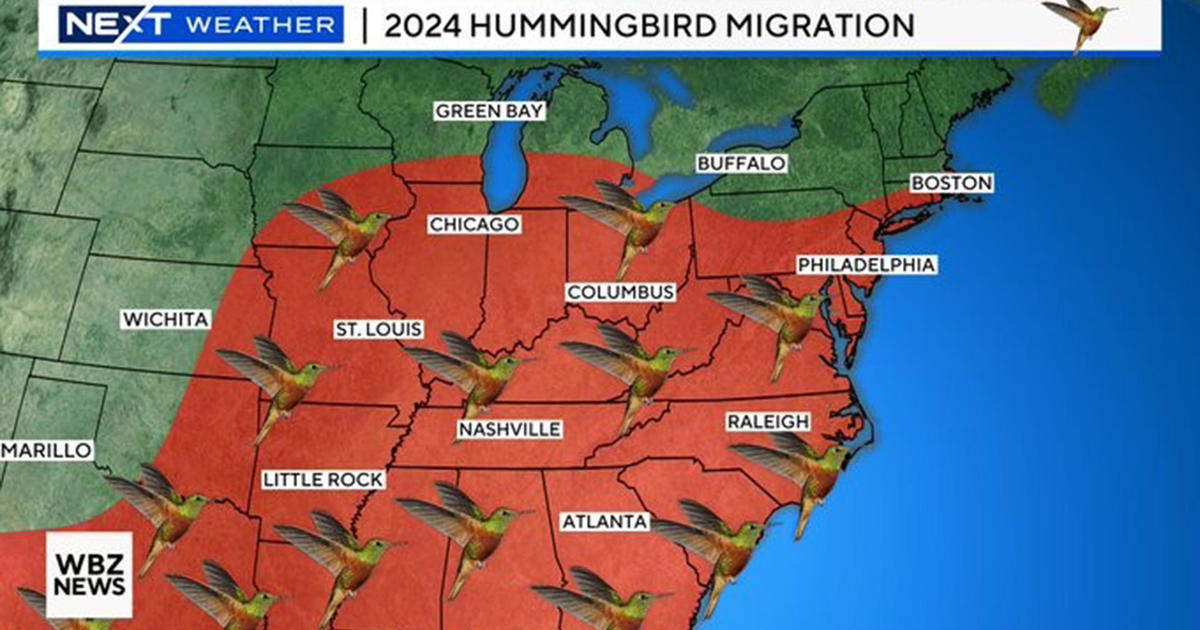BOSTON (CBS) - We have had several viewers write in and ask about tree related pollens and pests. This wet, cool spring has indeed created a lot of trouble and turmoil in New England's trees.
Mark Saidnawey, WBZ garden expert and owner of Pemberton Farms in Cambridge, gives some insight for those of us who were curious...
Viewer, Mark from Worcester asked...All of the Elm trees in my area {Worcester} seem to be producing much more seed pods and pollen than other years. Roofs,cars,lawns are covered this year way more than most years. Whats up?
Watch video:
You are correct! It is an exceptionally heavy year for seed pods this year for all Elm trees. Here in the Boston area as well. In my neighborhood I would say that there are 50% more seed pods on the ground than in years past. My thought is that it is a combination of both the cooler, wet spring and (more than likely) just a simple case of being a cyclical event. Last year was dry, causing many trees to not have stored up enough moisture. This year has been wet and cool since the ground thawed. This is more than likely a large part of the cause.
You should know that the Elm's are not alone this year in exceptional production. Two other examples are Lilacs and Dogwoods. Both putting out twice as many flowers this year than last. Enjoy them while they last, we may not be as lucky again next year.
Next up, William from Auburndale asked...All of the leaves on the trees around my house (Maple and Dogwoods) are being eaten by some kind of bug, can't see them. What do you think it is?
Watch video:
It is definitely the winter moth, it is a very, very bad year for them.
The winter moths emerge in November and lay eggs which hatch when temperatures reach around 55 degrees on average. The larvae are pale green caterpillars (about an inch long) with a white stripe running down each side of its body. They feed on trees like the Maple until about mid June when they migrate to the soil to pupate.
One of the most popular and effective treatments for winter moth is application of Bacillus thuringiensis (BT). BT is a bacterium that kills winter moth larvae by eating the pest's stomach cell layer. BT works best on young winter moth larvae.
Got more garden related questions? Email us here at weather@cbsboston.com or give Mark a visit at the Pemberton Farms Garden Center on Mass. Ave in Cambridge.



